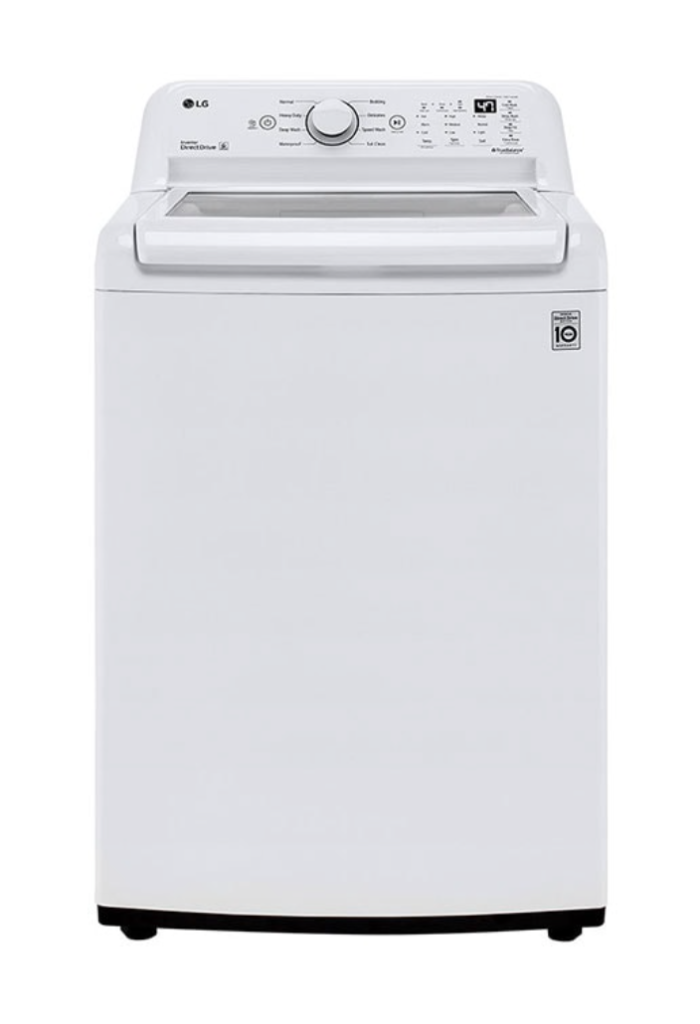Recent innovations have led to more options than ever before when you’re choosing a washing machine. With such a large variety of brands, models, and features available, it can be difficult to settle on the right one for your household. The biggest question to answer is whether you should go with a traditional washer or a high-efficiency (HE) washer. Here, we’ll break down all the need-to-know factors of high-efficiency washers vs. traditional washers so you can walk away with the ultimate pick.
What Is a High-Efficiency Washer vs. Traditional Washer?
There are several key differences between HE washers and traditional washers. The first is this: HE washers must meet a strict set of water and energy levels to be considered highly efficient. Traditional machines don’t have to meet these same requirements. Moreover, both washers are structured in separate ways, using different parts to clean clothes. This leads to differing cleaning methods, each with its own pros and cons.
Key Differences Between an HE Washer and a Conventional Washer
Some of the key factors that separate a standard washing machine from an HE one include energy consumption, water usage, agitator parts, wash cycle time, preferred detergent types, load capacity, and, ultimately, how clean the clothes get.
Energy Consumption
When it comes to energy consumption, the HE washing machine will serve you with lower energy bills. These laundry machines make use of technology that shortens wash time and uses less water per load. This also means less heat is needed for the water. In fact, HE washers use just 20 to 50% of the energy used by traditional machines.
Water Usage
One neat bit of technology HE washers provide is sensors that automatically detect how much water is needed per load. While this means water levels in HE machines are on the lower side, they still get the job done. On the opposite end, traditional washers have standard water levels that vary by the size of load selected.
Central Agitator
Central agitators, a key piece of a traditional washer, aren’t part of HE washers. Located inside the drum of a traditional washer, the agitator is the central tube that twists clothes back and forth during a wash to help laundry detergent clean fabric and remove dirt. While agitators are great for getting your clothes clean, they can be rough on delicate fabrics. This roughness could lead to potential wear and tear over time.
HE washers don’t have an agitator. Instead, they rely on impellers. Impellers are smaller cones or discs at the bottom of the washer that create water currents. These currents cause clothes to move in a tumbling motion. Impellers are usually gentler on clothes than agitators but don’t always get the tough stains out. Also, HE washers have high-speed spin cycles that can cause clothes to get tangled up during the wash.
Wash Cycle Time
As for wash cycle time, traditional washers have HE washers beat. Since traditional machines use more water, they can get the cleaning job done much quicker.
Preferred Detergent Types
Another key difference in the debate of high-efficiency washers vs. traditional ones is the laundry detergent needed. While traditional washers can use just about any traditional detergents, HE washers require HE detergent. This detergent is specifically created to work with low water levels. This kind of detergent uses fewer suds compared to regular detergent. Too many suds affect the cleaning cycle of HE machines and prevent clothing from properly tumbling. Plus, suds in HE machines can lead to mold and odor buildup over time, leading to bigger (and more expensive) problems.
Load Capacity
HE washers have a much larger load capacity, thanks to their bigger size and lack of agitators. Take the LG WM8100HVA 5.2-Cu. Ft. TurboWash Washer with Steam Technology, for example. Large capacity washers often start at 4.2 cubic feet, so this model is particularly big. It can take on entire bed sets and comforters in the same load without a squeeze. Families that often do larger loads will likely appreciate this option.
Cleaning Ability
Many washing machine buyers believe that traditional washers provide cleaner and fresher clothing. Why? Because traditional washers do use more water, which many people associate with a deeper clean. However, HE washers do just as good a job if you’re mindful of using the right detergent and perform proper maintenance when and if needed. In the end, both types give you clean clothes.
How Much Can You Save With a High-Efficiency Washer?
When comparing the price of high-efficiency washers vs. traditional ones, you have to consider costs in both the long and short terms. While HE washers often come with a higher price tag upfront and require the purchase of more expensive detergent, they save you money in the long run with their water and energy cost savings. You’ll be using way less water and less heat, which means you’ll avoid those spikes in utility bills.
Let’s take a look at some examples. LG Appliances is a big-name brand in the washer field, producing some of the most popular traditional HE washers. A favored traditional machine choice is the LG WT7005CW 4.3-Cu. Ft. Top Load with 4-Way™ Agitator & TurboDrum™ Technology Washer, coming in at $749. This is a slightly-above-average price compared to similar top-load washer models but remains under the average cost for HE washers.

Samsung is another much-loved brand, including for high-efficiency washers. The Samsung WA50R5200AV/A4 5.0-Cu. Ft. Top Load with Active Water Jet Washer has all the typical HE features and costs $949, just $200 more than the LG traditional model mentioned above. While this machine does cost a couple more hundred dollars upfront, it has a large capacity, meaning fewer loads, leading to less detergent needed as well as water and heat.

Also, considering factors like the number of laundry loads done per year and the average cost per load, you can end up saving nearly $500 per year going the HE washer route. This leads to thousands of dollars saved over many years for your washer, making the high efficiency a great consideration for your household.
